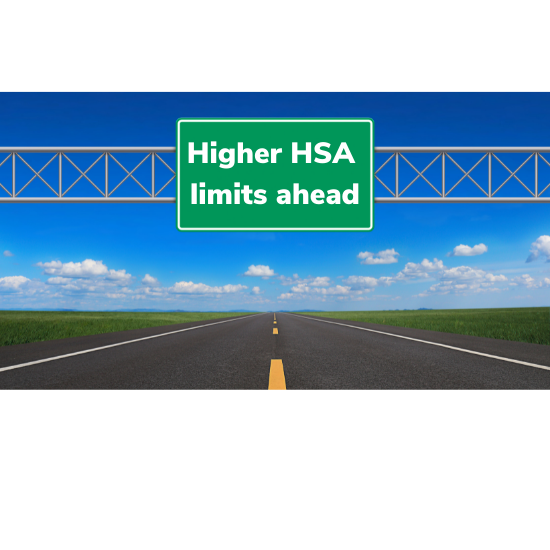IRS Raises HSA Contribution Limits for 2023

Contribution limits on Health Savings Accounts (HSA) for 2023 will be going up significantly in response to the recent surge in inflation, the IRS announced on April 29, 2022. Each year, the IRS adjusts the contribution cap on HSA contributions.
In 2023, the contribution limit for individuals will be $3,850, up from $3,650 in 2022. The contribution limit for family coverage will be $7,750, up from $7,300 this year. The adjustments are a roughly 5.5 percent increase over the limits set for 2022. By contrast, the adjustments were about 1.4 percent between 2021 and 2022.
The so-called catch-up contribution limit for those age 55 and older remains at $1,000 per year (an amount fixed by statute), meaning someone in that age bracket can set aside up to a total of $4,850 for individuals and $8,750 for families. Note: If you are enrolled in Medicare Part A or Parts A and B, you are not permitted to contribute to an HSA.
In addition, the IRS announced that the minimum deductible and maximum out-of-pocket expenses for a High Deductible Health Plan -- which HSAs must paired with – will also be increasing. The minimum deductible for individuals will increase in 2023 to $1,500, up from $1,400 in 2022. For families, it will be $3,000, up from $2,800 in 2022. The maximum out-of-pocket amounts will be $7,500 for individuals and $15,000 for families, increased from $7,050 and $14,100, respectively.
Lastly, the IRS also raised the maximum amount that employers may contribute to an Excepted Benefit Health Reimbursement Arrangement (EBHRA) to $1,950, up from the 2022 amount of $1,800. An EBHRA may be used toward out-of-pocket medical expenses, but not individual or group health care premiums. It includes dental; vision; long-term care; nursing home care; short-term, limited-duration insurance; and COBRA coverage. An EBHRA must be offered in conjunction with traditional group coverage, but employees do not have to be enrolled in the group health plan.
HSA contribution caveats
- HSA participants who exceed these contribution limits are subject to a 6% penalty tax on the excess amount, unless it is withdrawn from the account before that year’s tax deadline. The excess contributions are also not tax-deductible.
- Married couples who share one family HSA may contribute a total of $7,750. If both spouses have individual coverage, each may contribute up to $3,850 in separate accounts.
Source: IRS Revenue Procedure 2022-24


Share Your Thoughts